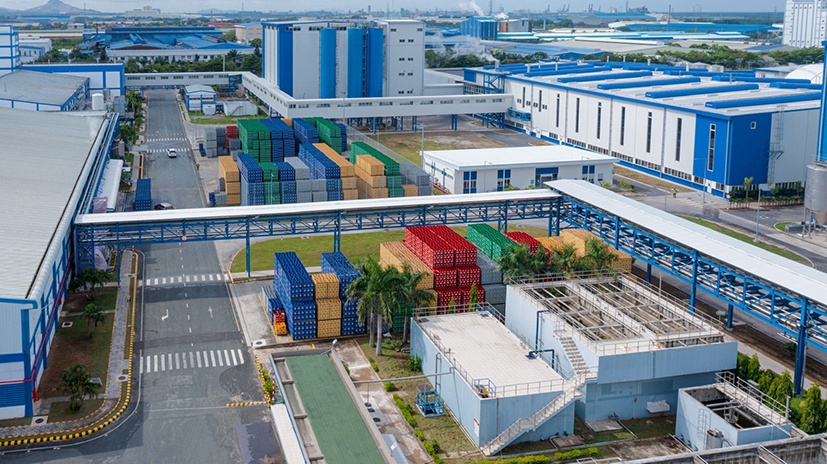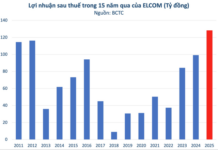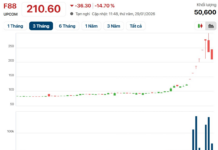On August 8, at the workshop “Draft Law on Special Consumption Tax (Amended) and the Beverage Industry,” ministries, sectors, economic, health, legal, and social experts, and beer, liquor, and beverage companies discussed the draft Law on Special Consumption Tax (SCT).
The draft proposes to adjust the tax rate according to a roadmap of continuous annual increases until 2030 for liquor and beer and to include beverages according to Vietnamese standards (TCVN) with a sugar content of more than 5g/100ml as subjects of SCT.
The drafting committee proposed two plans to increase the SCT rate for liquor and beer.
Plan 1: In 2026, when the tax rate is increased by 5% compared to the current regulation, the selling price of products will increase by 10% compared to 2025.
Plan 2: In 2026, when the tax rate is increased by 15% compared to the current regulation, the selling price of products will increase by 20% compared to 2025.
In the next four years, under both plans, the Ministry of Finance proposes to increase the tax rate by 5% per year, which will cause the selling price to increase by 2-3% compared to the previous year.
By 2030, the SCT rate for beer and liquor above 20 degrees will increase to 90-100% (higher than the current rate of 25-35%), and liquor below 20 degrees will increase to 60-70% (higher than the current rate of 25-35%).
Regarding these proposals, Mr. Nguyen Hoang Giang, General Director of Sabeco, said that the Ministry of Finance’s proposal to increase taxes so quickly and in a short period has made Sabeco and the beverage industry very concerned.
After COVID-19, with many difficulties, businesses are facing global economic fluctuations, supply chain disruptions, rising raw material prices, and weak purchasing power. In addition, the strict control of alcohol concentration to implement Decree 100 has led to a significant reduction in consumption and even changed the drinking habits of Vietnamese people.
“Therefore, the proposal to continuously increase taxes in the following years until 2030, with a tax rate of up to 90%-100%, is truly shocking. Businesses do not see a bright outlook for recovery in the coming years.
The tax increase will cause businesses, especially small ones, to shut down, causing significant job losses and affecting social security,” Mr. Giang emphasized.

Mr. Nguyen Hoang Giang
Sharing the same view, Prof. Dr. Ngo Tri Long, an economic expert, said that the proposed high increase rate and the continuous annual tax increase plan would lead to a severe decline in output, resulting in government tax losses.
Therefore, it is necessary to carefully consider the tax increase in the current economic context of Vietnam to avoid “shocking” businesses while ensuring state budget revenue.
In addition, a representative of Heineken, Ms. Tran Ngoc Anh, Senior Director of External Relations of Heineken Vietnam, said:
“Overall, to achieve the goals of taxation, protecting consumers’ health, and ensuring stable economic development, we believe that Vietnam needs a comprehensive solution.
It is essential to raise consumers’ awareness of alcoholic beverages through communication and education programs. The increase in the SCT rate for alcoholic beverages should follow a reasonable roadmap with moderate increases to give businesses time to recover, especially considering the rising input costs, particularly logistics costs due to geopolitical conflicts worldwide.
Behavior change must be gradual and in the right direction, not shifting to consuming products without clear origins…”

Ms. Tran Ngoc Anh, Senior Director of External Relations, Heineken Vietnam
The Heineken representative added that in 2023, the company created 3,355 direct jobs and more than 172,000 indirect jobs throughout the supply chain. For every direct job at Heineken, 51 jobs are created in the supporting supply chain.
In 2023, Heineken Vietnam contributed 0.5% to the country’s GDP and 2.1% to the total national tax revenue, equivalent to VND 33 trillion in taxes throughout the value chain. In 2023 alone, business activities declined by 26% in volume, leading to a 28% decrease in Heineken’s added value contribution and a 37% drop in tax contributions to the state budget.

Heineken’s Brewery
The most extensive bribery case ever in Thanh Hoa: Numerous suspects prosecuted for “Giving and Receiving Bribes”
The Provincial Security Investigation Agency (PSIA) of Thanh Hoa province announced on January 31st that it has made the decision to initiate a prosecution against 23 individuals in connection with the offenses of “Accepting bribes” and “Giving bribes” as stipulated in Article 354(3) and Article 364(2) of the Criminal Code.
Mobile World achieves revenue of VND118,000 trillion: TVs, tablets, and phones all decrease by 10% – 50%, while one product grows in both quantity and revenue.
Mobile World Investment Corporation (MWG) has recently announced its 2023 business results. According to the report, the company’s consolidated revenue reached over 118 trillion Vietnamese dong, equivalent to 89% of the revenue in 2022.




















